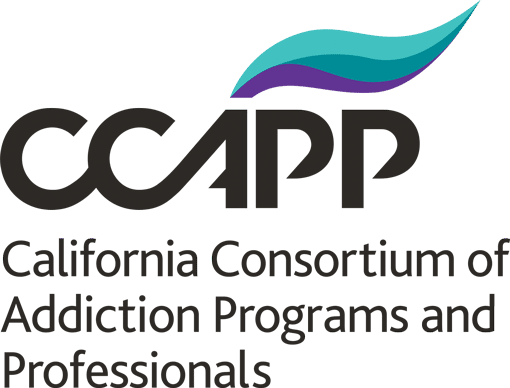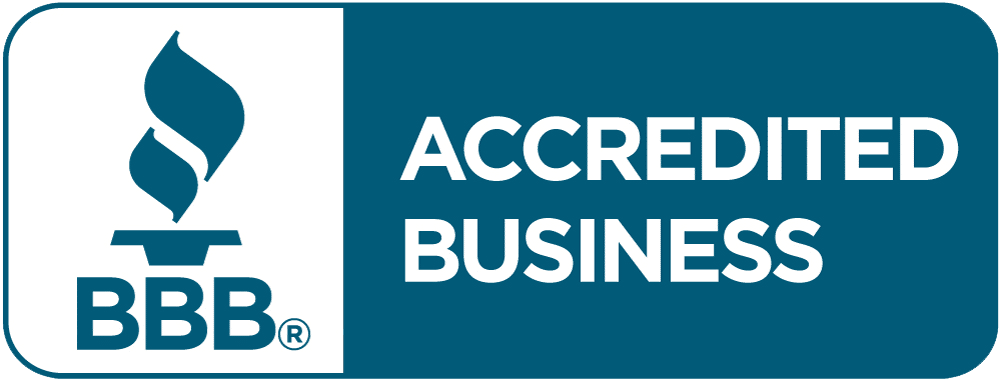
Recovery is a profound and challenging journey that demands great inner strength, resilience, and unwavering determination. It entails the reclamation of one’s life and the forging of a fresh path toward healing and personal growth. However, alongside the physical and emotional challenges, individuals in recovery often face another hurdle: stigma. The social stigma surrounding addiction and mental health can be overwhelming, causing shame and isolation and hindering the recovery process.
Read on to explore the transformative power of embracing a new identity in recovery and how it can help individuals overcome stigma, rebuild their lives, and thrive.
The Impact of Stigma on Recovery
1) Barriers to Seeking Help
Stigma and Social Perception: The stigma surrounding addiction and mental health creates a hostile environment that instills fear of judgment and discrimination in individuals. Misconceptions and stereotypes prevalent in society often marginalize those who seek help, leaving them feeling ashamed, embarrassed, or unfairly labeled as “weak” or “broken.” This self-stigmatization diminishes their sense of self-worth and presents a significant challenge when admitting their need for assistance.
Fear of Negative Repercussions: The fear of negative consequences, such as job loss, strained relationships, or isolation from society, poses a significant barrier. If someone is worried about their confidant breaching their confidentiality, the potential effects that may have on their personal and professional lives may deter them from seeking the help they need. Moreover, the fear of stigmatization and discrimination can be enough to stop an individual from taking the necessary steps toward recovery.
Lack of Awareness and Education: Limited knowledge about available resources and treatment options can hinder help-seeking behaviors. Many individuals may not be aware of the support services, therapy, or treatment programs available to them. Additionally, the lack of accurate information about addiction and mental health can perpetuate stigma and misconceptions, further discouraging individuals from seeking help.
Accessibility and Affordability: Some people have limited access to affordable and quality healthcare services, which can stop them from getting the help they need. Things like a lack of insurance coverage, high costs of treatment, long waiting lists, and limited availability of specialized services may stop them as well.
2) Isolation and Self-Stigmatization
Isolation and Alienation: The stigma surrounding addiction and mental health creates a sense of isolation for individuals struggling with these challenges. The negative attitudes and stereotypes prevalent in society can make individuals feel judged, misunderstood, and disconnected from others. This isolation can lead to feelings of loneliness and despair, exacerbating their condition and hindering their recovery.
Self-Stigmatization: When people internalize society’s judgments and stereotypes, they begin to perceive themselves as flawed, weak, or unworthy. This feeling of shame and self-blame can profoundly impact their self-esteem and confidence, making it challenging to reach out for support or open up about their challenges to others.
Fear of Rejection and Discrimination: The fear of rejection and discrimination often deters individuals from seeking the support they require. It could be because they are concerned that being open about their addiction or mental health challenges will result in negative reactions from friends, family, or even healthcare providers. This apprehension of being judged, criticized, or marginalized can create hesitation in individuals, making them reluctant to seek the support they desperately need.
Impacts on Help-Seeking Behaviors: The isolation and self-stigmatization resulting from stigma can have a significant impact on help-seeking behaviors. Individuals may avoid reaching out for support, believing that they should deal with their struggles alone. The reluctance to share their experiences or seek professional help can delay their access to necessary resources and impede their recovery process.
3) Hindrance to Progress
Undermined Self-Esteem and Confidence: Stigma surrounding addiction and mental health can erode an individual’s self-esteem and confidence, hindering their progress in recovery. Constant reminders of past struggles and societal judgments can make individuals internalize negative beliefs about themselves. This self-doubt can create a cycle of negativity, making it difficult for them to break free from old patterns and fully embrace a healthier lifestyle.
Limited Opportunities for Rebuilding Lives: Stigma can have far-reaching consequences beyond personal well-being. It can limit opportunities for individuals in recovery to rebuild their lives. Employment discrimination, housing challenges, and social exclusion can further marginalize individuals and impede their progress. The lack of acceptance and understanding from society can make it difficult for them to access stable employment, secure suitable housing, or form meaningful connections, thereby hindering their overall recovery.
Relapse and Discouragement: The impact of stigma on an individual’s progress in recovery is not limited to the initial stages. The constant reminders of past struggles and the fear of judgment can increase stress levels, triggering relapses or discouragement. The perception that society views them as “failures” can undermine their motivation to persevere and make positive changes, potentially leading to a cycle of setbacks and challenges in their recovery journey.
Internalized Stigma and Self-Fulfilling Prophecy: Internalized stigma, resulting from the perpetuation of societal judgments, can lead individuals to believe the negative stereotypes associated with addiction and mental health challenges. This self-fulfilling prophecy can become a hindrance to progress, as individuals may start believing they are incapable of change or unworthy of a better life. Overcoming this internalized stigma requires support systems that challenge these negative beliefs and empower individuals to embrace their recovery journey.
4) Lack of Understanding and Empathy
Misconceptions and Stereotypes: A lack of understanding about addiction and mental health often leads to misconceptions and stereotypes. These misconceptions can perpetuate stigma and hinder the recovery process. When society views addiction or mental health challenges as moral failings or character flaws, individuals in recovery may face judgment rather than empathy and support.
Inadequate Knowledge: Insufficient knowledge about addiction and mental health can contribute to a lack of empathy. Many people may not fully grasp the complexities of these conditions, including the biological, psychological, and environmental factors involved. This lack of understanding can create a disconnect between individuals in recovery and the broader society, hindering their ability to receive the support and compassion they need.
Fear of the Unknown: Fear often accompanies a lack of understanding, and this fear can manifest as stigmatizing attitudes and behaviors. People may fear what they don’t understand, leading to avoidance or rejection of individuals in recovery. This fear can stifle open dialogue, empathy, and the creation of a supportive environment, all of which are required for successful recovery.
Impact on Reintegration: Lack of understanding and empathy can make it challenging for individuals in recovery to reintegrate into society. The absence of support and acceptance can isolate them, leading to feelings of shame, self-doubt, and discouragement. Without the understanding and empathy of others, individuals in recovery may struggle to rebuild their lives, maintain relationships, and secure stable employment, all of which are essential for their sustained recovery.
Shifting Perspectives: Redefining Identity
Moving Beyond Labels
Embracing a new identity in recovery means moving beyond the labels associated with addiction or mental health challenges. It involves recognizing that these experiences are just a part of a person’s journey and do not define their entire being. By shifting the focus from past struggles to their present and future potential, individuals can redefine themselves in a more holistic and empowering way.
Cultivating Self-Compassion
Recovery provides an opportunity for individuals to practice self-compassion and develop a healthier relationship with themselves. By acknowledging their own worth and embracing self-care, individuals can foster a sense of self-love and acceptance. This shift in perspective allows them to let go of self-blame and shame, paving the way for personal growth and transformation.
Discovering Strengths and Passions
Recovery offers individuals a chance to rediscover their strengths, talents, and passions. By exploring new hobbies, interests, and talents, individuals can tap into their innate abilities and develop a sense of purpose. This process helps them build a new identity centered around their positive attributes and aspirations, rather than solely focusing on their past challenges.
Connecting with a Supportive Community
Building a new identity in recovery often involves connecting with a supportive community. Surrounding oneself with individuals who understand and appreciate the journey of recovery can provide a sense of belonging and validation. Peer support groups and counseling can offer a safe space for individuals to share their experiences, gain perspective, and receive encouragement.
Celebrating Progress: Milestones and Achievements
Acknowledging Growth and Transformation
Recovery is a process of personal growth and transformation. By celebrating milestones and achievements, individuals can acknowledge their progress and recognize the positive changes they have made. This boosts self-esteem and confidence, reinforcing their commitment to continued growth.
Building Resilience and Motivation
Recognizing and celebrating milestones in recovery helps build resilience. It serves as a reminder of the challenges overcome and the strength it took to reach each milestone. This strengthens the motivation to keep moving forward and face future hurdles with determination and optimism.
Inspiring Others
Celebrating progress in recovery not only benefits the individual but also inspires others who may be on a similar journey. Sharing success stories and achievements can provide hope, encouragement, and inspiration to those who may be struggling. It creates a ripple effect of positivity and motivates others to take steps toward their own recovery.
Cultivating Gratitude and Mindfulness
Celebrating progress encourages individuals to practice gratitude and mindfulness. It allows them to reflect on the positive aspects of their recovery journey and appreciate the support they have received along the way. This fosters a sense of gratitude for the progress made and the opportunities that lie ahead.
Strengthening Support Networks
Celebrating milestones in recovery provides an opportunity to involve and engage support networks. It allows friends, family, and peers to share in the joy and success, which strengthens relationships and fosters a sense of community. This support network is critical to sustaining recovery and promoting long-term well-being.
Breaking the Cycle of Stigma
Here are three key strategies for breaking the cycle of stigma:
Educating Others
Education plays a pivotal role in combating stigma. By taking the initiative to educate others, we can dispel misconceptions, promote accurate information, and challenge harmful stereotypes. This can be done through public speaking engagements, workshops, or even informal conversations with friends, family, and colleagues. By sharing knowledge and personal insights, we can help others develop a deeper understanding of the issues at hand and encourage empathy and compassion.
Engaging in Community Initiatives
Communities have a significant impact on shaping attitudes and behaviors. By actively participating in community initiatives, we can foster a culture of understanding and empathy. This could involve organizing events, such as panel discussions or awareness campaigns, that focus on raising awareness about stigmatized issues. Additionally, supporting organizations that provide resources and support to marginalized groups can be instrumental in challenging stigma and promoting inclusivity.
Challenging Stigma through Personal Stories and Experiences
One of the most powerful ways to challenge stigma is by sharing personal stories and experiences. When individuals who have faced discrimination and prejudice speak up, it humanizes the issue and helps break down stereotypes. This can be done through various mediums, such as writing articles or blog posts, creating art, or participating in storytelling events. By openly sharing our experiences, we can empower others to do the same and create a ripple effect of change.
It is through these collective efforts that we can foster empathy, understanding, and acceptance, ensuring that no one is defined solely by their past struggles but by the hope and potential for a brighter future.
How Can Christian’s Drug Rehab Help?
Christian’s Drug Rehab can assist individuals in releasing stigma and embracing a new identity in addiction recovery through our faith-based approach, spiritual healing, supportive community, and holistic treatment programs. By incorporating Christian principles and teachings, individuals can find acceptance and forgiveness, allowing them to let go of self-stigmatization. Through counseling, prayer, and spiritual guidance, they can reconnect with their faith and develop a renewed sense of worth and purpose.
Our supportive community provides acceptance and encouragement, combating the isolation caused by stigma. Additionally, the holistic approach we take addresses the physical, emotional, and spiritual aspects of addiction, empowering individuals to develop coping mechanisms and cultivate a positive self-identity. Take the first step towards lasting recovery by reaching out to Christian’s Drug Rehab today. Our compassionate team of experts is here to guide you on your journey to healing and restoration. Contact us to learn more about our personalized treatment programs. Remember, help and hope are just a call away. Start your path to recovery now!












